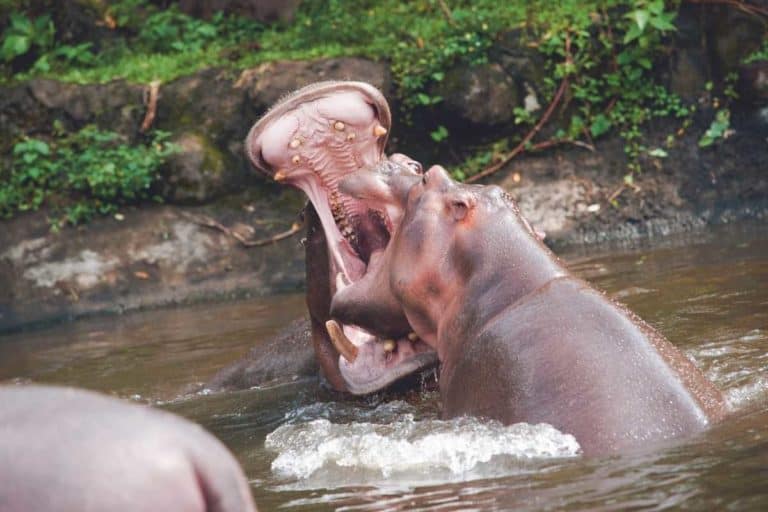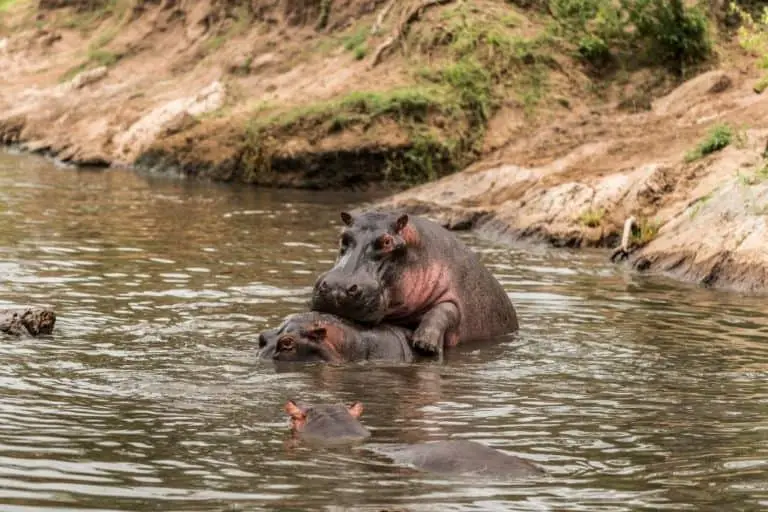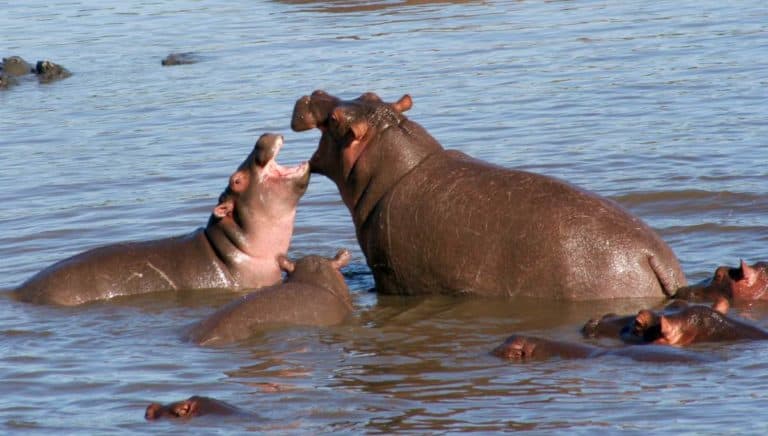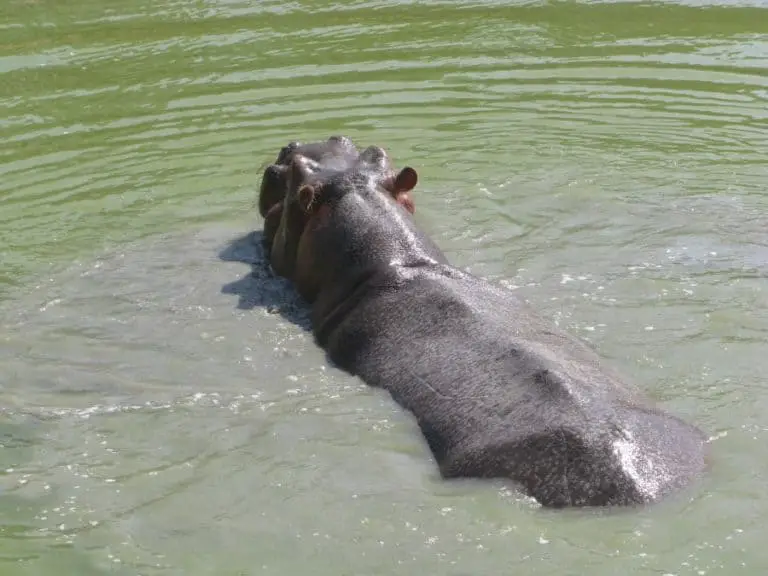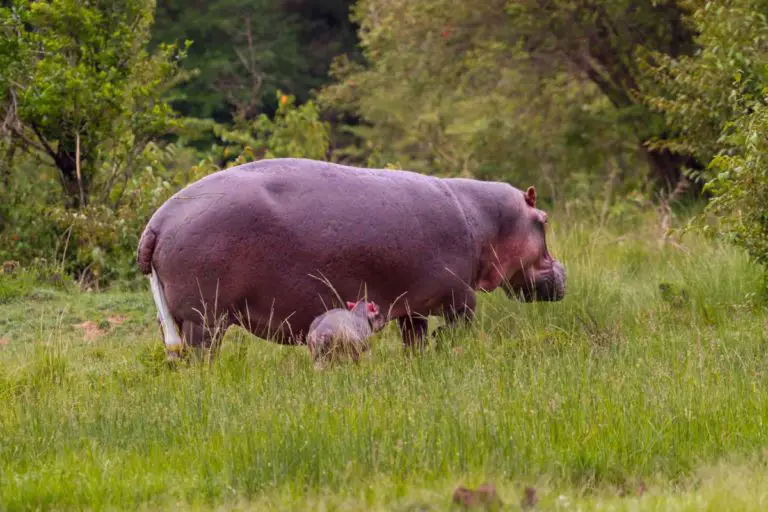Are Hippos Apex Predators? The Truth About Hippo Hunting
The term “apex predator” describes an animal that sits at the top of the food chain with no natural predators. These creatures are typically large and powerful, with a diet mainly consisting of other animals.
Given their impressive prowess, you might think that hippos would be considered apex predators. However, this is not the case. Although they are large and dangerous animals, hippos scavenge most of their food from the bottom of the food chain.
They primarily eat plants, with only a tiny percentage of their diet consisting of meat. In fact, hippos are more likely to be preyed upon than to prey upon others.
When they are young, they are often targeted by crocodiles, and as adults, they can fall victim to lions and other large predators.
So, while hippos may be dangerous animals, they do not prey on other animals for food and are therefore not considered apex predators.
Why Hippos are not apex predators?
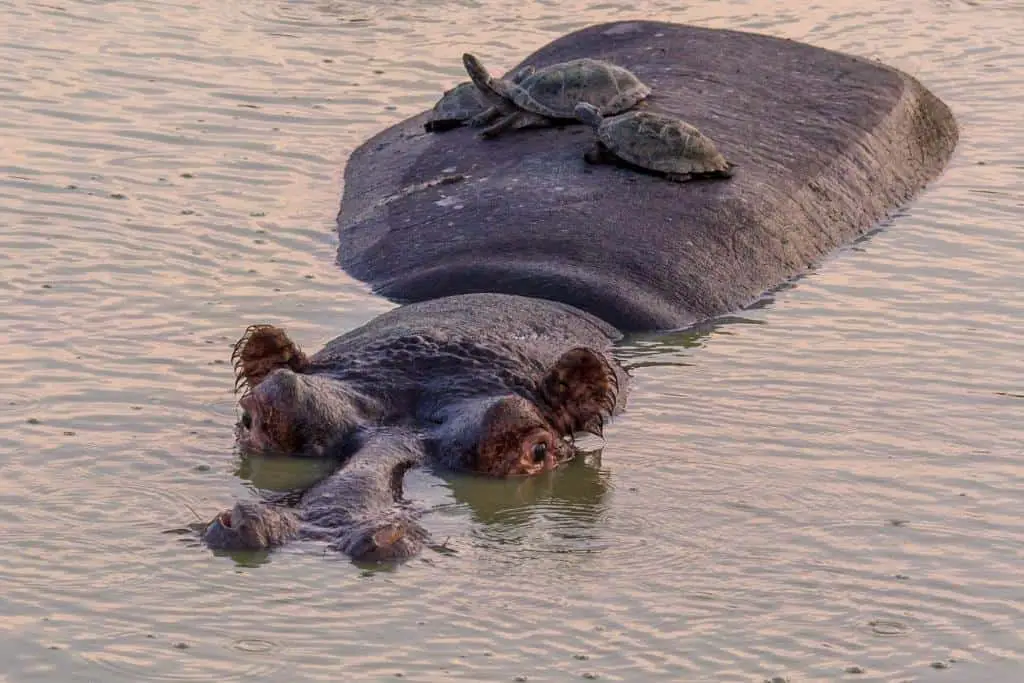
There are a few reasons for this.
Hippos are herbivores, meaning that they primarily eat plants. While they occasionally eat small animals like fish or rodents, this is not their primary diet.
Hippos are not particularly agile animals. They can swim quickly in short bursts but are relatively slow on land. This makes them vulnerable to predators such as lions and crocodiles.
Hippos live in areas with abundant food sources, such as riverbanks or floodplains. This means that they do not need to compete with other animals for food and thus are not considered apex predators.
Different types of apex predators in the animal kingdom
An apex predator is an animal at the top of the food chain. These predators have no natural enemies and play an essential role in keeping the ecosystem balanced.
The term “apex predator” is often used to refer to large carnivores; perhaps the most familiar apex predator is the lion, which sits atop the food chain in Africa’s grasslands.
However, there are many other apex predators found around the world. For example, the Great White Shark is an apex predator in the oceans, while the Grey Wolf is a top predator in North America.
Although apex predators are typically feared by humans, they play an essential role in maintaining the health of ecosystems.
Each of these animals has a different place in the ecosystem, but they all play an essential role in maintaining balance.
Apex predators help to keep populations of other animals in check, and they also help to ensure that no one species dominates an ecosystem.
In short, apex predators are a vital part of the animal kingdom.
How do hippos compare to other apex predators in terms of diet, size, and strength?
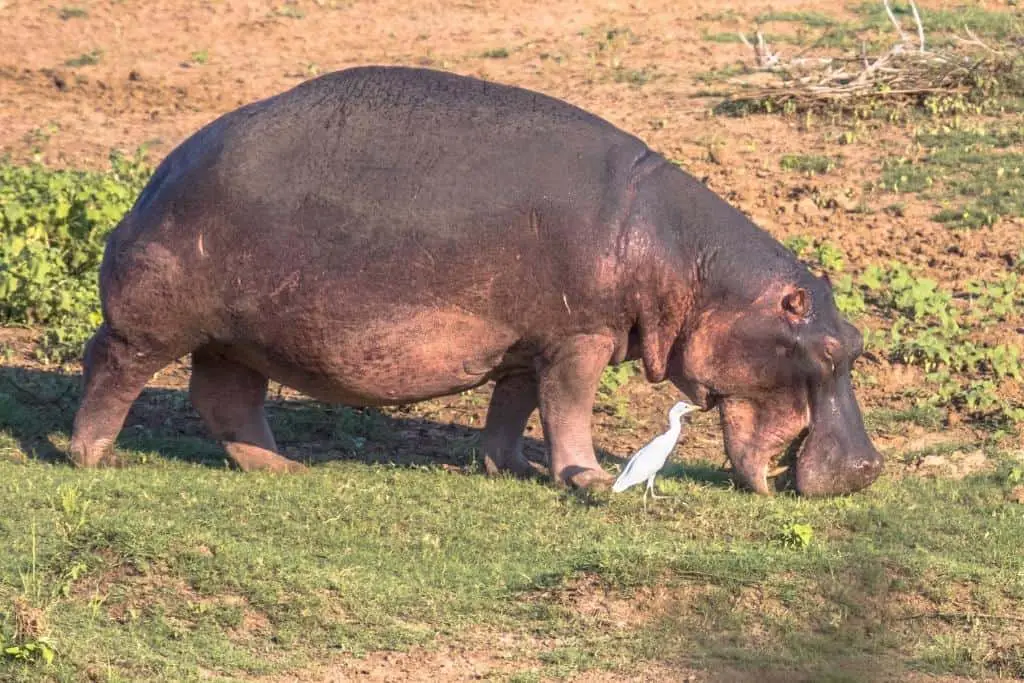
Hippos are some of the largest and most powerful animals on the planet. They can weigh up to 4,5 tons and are proficient swimmers. However, they are not particularly fast or agile on land.
Despite their immense size, hippos are very agile and can reach speeds of up to 30 miles per hour in short bursts. In addition to their size and speed, hippos have enormous strength.
Their jaws can exert a force of 1820 PSI, making them capable of crushing bones with ease.
Regarding diet, hippos are mainly herbivores, although they occasionally eat meat if it is available. Their primary food source is aquatic plants, which they eat while submerged in water. However, they will also come ashore to graze on land grasses.
Given their massive size and carnivorous teeth, one might expect hippos to be apex predators.
However, they are relatively timid animals and tend to avoid confrontation whenever possible. Instead, their main predators are humans, who hunt them for their ivory tusks.
Do hippos pose a threat to humans living near their water habitats?
Although they may look harmless, hippopotamuses are one of Africa’s most dangerous animals. These massive mammals weigh up to three tons and can grow up to sixteen feet long, making them larger than most automobiles.
And while they are mostly peaceful creatures, hippos can be incredibly aggressive when feeling threatened. In fact, hippos are responsible for more human deaths in Africa than any other animal.
They typically attack without warning, using their sharp teeth and powerful jaws to cause severe injury or even death.
For this reason, it is essential for humans living near hippo habitats to take precautions and avoid contact with these dangerous animals.
Are hippos predators or prey?
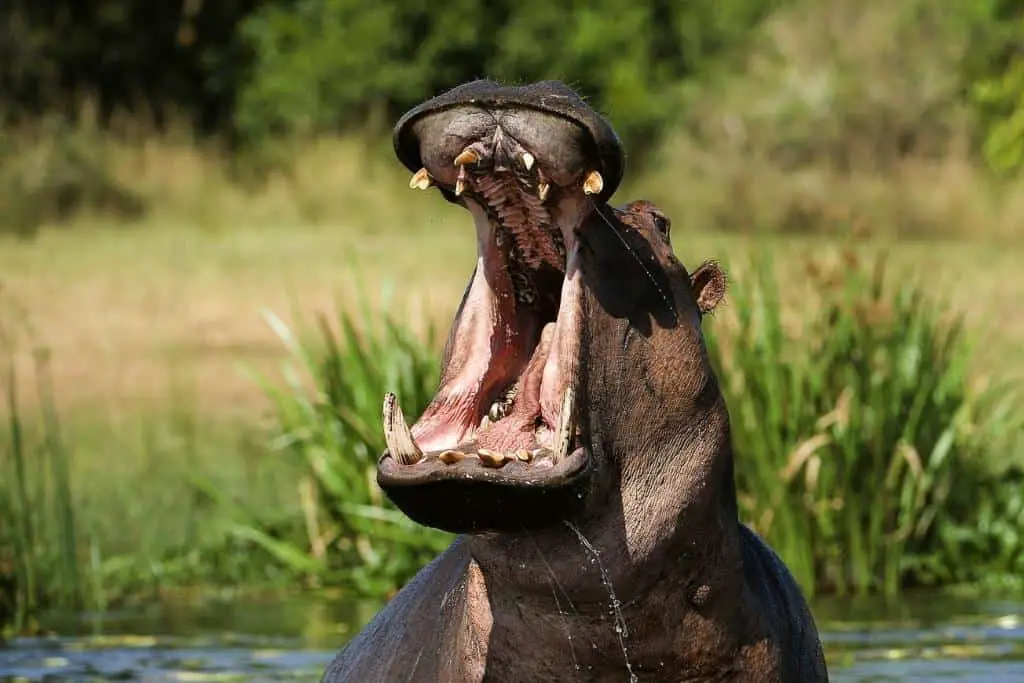
Despite their reputation as fierce predators, hippopotamuses are also preyed upon by several animals, including lions, crocodiles, and humans.
So, whether you consider them predators or prey, there’s no denying that hippos are one of the most fascinating and dangerous animals on the planet.
What is the strongest apex predator?
The title of “strongest apex predator” is a bit of a misnomer because there is no definitive answer. It depends on several factors, including the size and weight of the animal, the type of prey it hunts, and the habitat in which it lives.
For example, an elephant Seal is much larger and heavier than a Polar Bear, but the Polar Bear can take down much larger prey, such as Walruses.
A lion is generally considered the strongest land-based apex predator, while the Blue Whale is the largest and most powerful animal on the planet.
Ultimately, the title of “strongest apex predator” is probably best left to the individual animal itself.
After all, an apex predator doesn’t become apex by being weak. Whatever the case, one thing is for sure: you wouldn’t want to meet any of these fearsome predators in a dark alley!
